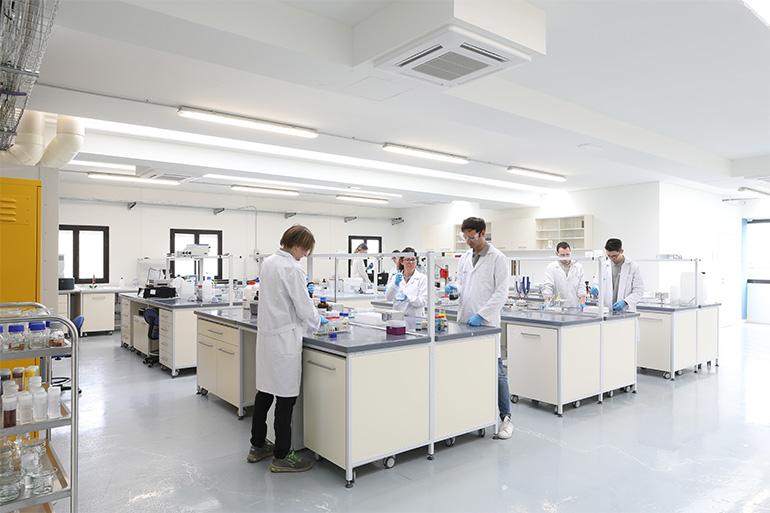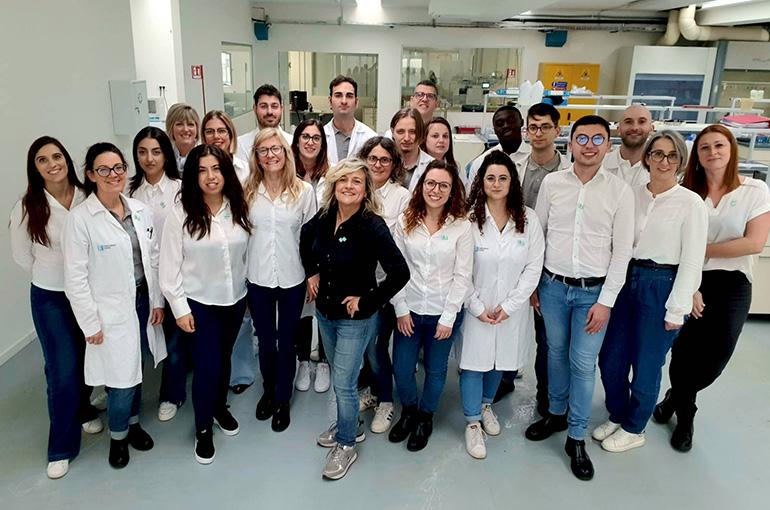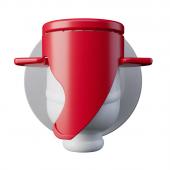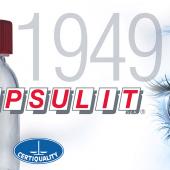Materials and objects in contact with foods
Update, revisions and new perspectives of FCM legislation.
By Marinella Vitulli, Food Contact Centre
For the second year in a row after the lockdown, the annual event on FCM was held in person, scheduled on 20 December 2023 by the Italian Packaging Institute, with the participation of Maria Rosaria Milana, already Head of the National Reference Laboratory on Food Contact Materials of the ISS (Italian National Institute of Health) and of the entire team. The event was once again of great interest and was attended by an audience composed of many experts and insiders in the field.
In the morning session, the current laws were reviewed together with various relative regulatory changes, as well as regulations under development for the immediate future; the contributions of the ISS group described the current state of the European and national legislative framework regarding FCM; particular attention was given to new trends and new regulations, focusing on updates regarding the Regulations for the use of recycled plastic in contact with foods.
The afternoon session was characterised by a question time linked to the numerous questions posed by companies, with the aim of providing concrete answers to the large number of experts present in the hall.
Changes to the legislation: current situation and activities in progress
The contribution of Dr Milana opened the day with a general overview of FCM legislation. The key principles reported in the framework regulations Reg EC 1935:2004 and Reg EC 2023:2003 were illustrated, pointing out that FCM are part of food legislation and comply with the same food sector rules as far as official controls are concerned.
It was pointed out that a general adjustment of the “Farm to Fork” Strategy was announced by the European Commission in 2020 to guide a change towards a fair, healthy and environmentally friendly food system. Member States, in the implementation of the regulations and laws, will then have to align to European Community policies and are bound by the objectives established by the Commission. With regards to changes in FCM legislation, it is very likely that the strategy will be based on shifting the focus of the final FCM to giving priority to the assessment and management of the substances and on the use of safer and more sustainable alternatives.
As a result, the European Commission will concentrate on defining more targeted rules for the final FCM characteristics to identify the level of safety and the ways to achieve such a level, strengthening the rules on good manufacturing practices.
With regards to priorities regarding substances, the safety evaluation must include:
- NIAS (Non-Intentionally Added Substances);
- CMRs (Carcinogenic, mutagenic and reprotoxic substances);
- EDs (endocrine disruptors; persistent, bioaccumulative and toxic substances);
- other substances with specific properties (for example, substances in nano-form).
There must also be clear support for the development of safer and more sustainable alternatives, such as, for example, production methods based on plants or bio-based substances; rules will be developed for supporting all forms of “safe” re-use and for including all recycling technologies, ensuring consistency with environmental law.
Among future initiatives, it’s worth noting a greater priority for the exchange of information on the compliance and control of products, improving the quality and accessibility of information along the supply chain. Clear rules will be developed on required data and on the transfer of information, introducing the Declaration of Conformity for all FCM (already mandatory in Italy for some time), and possibly digitalising the information to support businesses. It is also possible to refer to bodies other than the Competent Authorities for official controls, such as “Delegated” bodies (as per the Regulation on Official Controls 625/17) or “Notified” bodies. It will also be important to further develop technical regulations and uniform analytical methods.
The subsequent considerations shared were interesting, focusing on the drivers of change, which include new scientific approaches, industrial innovations, as well as an increasingly powerful analytical chemistry linked to scientific and technological research.
How specific European Community initiatives are evolving
Attention was then focused on the activities carried out by specific institutional technical working groups.
- The amendments to the Plastics Regulation (EU)10/2011 published in 2023, which didn’t modify the articles but only the Single List, were described; new substances have been introduced; in addition, the FCM 96 substance «Wood flour and fibres, untreated» has been eliminated. Salicylic acid has also been removed and there are new limits for certain phthalates.
- With regard to the 18th amendment projects, the need to align with Regulation (EU) 2022/1616, which will imply changes to the articles, is clear.
- It’s likely that migration tests will be introduced also for multi-material multi-layer objects, and clarifications on the purity requirements of substances used in the management of production waste. Modifications to the Declaration of Conformity are also probable, as well as exception for the use of biocides.
- With regards to the possibility of introducing a migration limit for styrene, it has been clarified that reference laboratories are working to define migration methods in the food.
- In relation to the technical commissions of the EU Commission – Health and Food Safety Directorate General, they are continuing their work to redefine the migration limits of heavy metals from ceramic objects. Work is being carried out on new measures regarding Bisphenol, on a revision of the FCM regulation and on the publication of recycling authorizations. This progressive path will probably end beyond 2024.
- A specific presentation focused on Regulation (EU) 1616/2022 on recyclable plastic materials, a key issue taking account of the needs related to the circular economy. The new regulation has an important impact as it establishes a new legal basis for all procedures. The processes must be managed through a quality assurance system that ensures compliance with Regulations (EU) 1616/2022 and (EC) 2023/2006. The recycling process must be able to reduce any initial contamination to levels that are not a risk to human health; the decontamination phase is, therefore, fundamental, and the use of adequate technologies (such as the mechanical recycling of POET), and new technologies (for example, the recycling of other plastics) is permitted, and closed loop systems. The process must ensure compliance with the provisions of art. 3 of Reg (EC) 1935/2004, establishing conditions of use and any use restrictions, demonstrating safety through a specific Declaration of Conformity. Ad hoc evaluation strategies will be necessary for the decontamination of the polymers subject to investigation and analysis for the identification of unexpected contaminants. Of fundamental importance, first of all, is the characterization of the input materials, which must come from plastic materials and articles manufactured in accordance with plastics legislation. It is also necessary to submit to the competent authority, in the Compliance Monitoring Summary Sheet (CMSS), a summary file for checking compliance.
- The following presentations referred to ongoing activities of the European Union Reference Laboratory for Food Contact Materials (EURL-FCM), and the laws currently in force on Plastics, Papers and Cardboards, Metals and alloys. The JRC laboratory is also working to provide indications on the definition of the expected maximum lifespan of an FCM, om instructions to slow down deterioration, providing a description of the observable changes that indicate the end of life of the FCM.
Operational responses to questions posed by companies
A question time was held in the afternoon of 20 December, with questions from those present submitted during the morning, and the responses of the Italian National Institute of Health team, followed by comments on the application aspects.
This year the discussion was broken down according the various questions, from the management of NIAS, to documentation for supply chain dialogue; there was discussion about recycled plastic materials, on the percentages of recycled plastic usable in a PET context, on the validation of food processing machines and on the identification of styrene in foods. There were many questions and the large audience present in the hall was once more able to appreciate the expertise and helpfulness of the ISS work team in discussing complex questions linked to food contact legislation.
Food Contact Center: skills and activities
Personalised and tailored services, useful for obtaining products that are technologically suitable for the purpose and safe, through a study and a targeted plan guided by knowledge of materials and regulatory affairs related to the markets, with a view to sustainability and rational controls.

The Food Contact Center Srl - a center that provides specialist material analysis services, founded in Pistoia in 2016 on the initiative of Marinella Vitulli, and today operating in the materials laboratory in Brescia and in its offices in Cuneo - offers its clients years of experience in the study and analysis of packaging and materials, thanks to a team of over 25 qualified technicians.
In 2022 a new company was established thanks to the synergy between the Food Contact Center and a group of professionals in the sector with decades of experience: the Food Contact Services Srl, whose main aim is the dissemination of culture of process and product quality in manufacturing companies and users of materials in contact with foods. Food Contact Services offers advice and training, drawing up tailored projects for enterprises; it provides regulatory updating and online consultation services on global FCM (Food Contact Materials) legislation and on mandatory labelling.
It can assist enterprises to define a self-control or manual plan, designing a risk assessment in collaboration with the Food Contact Center. In this regard, it’s possible to operate through targeted conformity tests, but not only. Tests are not the only form admitted for the definition of conformity: with adequate assessments guided by specific skills, it’s possible to associate a limited number of analytical tests with other calculations or considerations, for example, correlated computational migrations, or estimation of simulants and pejorative situations, aimed also at associating the samples tested with various references, also through the evaluation of the thicknesses, ingredients and process used; it’s possible, in this way, to programme sustainable test plans for companies, which together with other skills allow for the definition of the supporting documentation.
Food Contact Center is also specialised in the evaluation of consumer exposure and in the performance of migration tests of food contact contaminants, including migration of Bisphenol A and metals such as, for example, Aluminium and Iron in food, key aspects also for evaluating the conformity of machines and appliances. Evaluation of NIAS (Non-Intentionally Added Substances) through Untargeted analytical techniques, is also fundamental. This is an area on which the Center has become specialised through studies and the development of libraries and databases in collaboration with the University of Pisa and Florence and with the instrumentation producer, Sciex. With regards to analytical strategies, the Center actively collaborates with national and international working groups such as, for example, commissions from GIFLEX, the Italian Packaging Institute and ILSI.
After the tests, Food Contact Center&Services can provide further assistance in the consequent drawing up of conformity declarations, as provided for by law, as well as the optimisation and control of company management systems, in the context of voluntary certifications, also through the carrying out of Accredia accredited inspection visits according to ISO 17020.
Other aspects on which the team supports companies are in areas related to life-cycle assessments, the planning of challenge tests for recycled materials, eco-design and environmental impact, and labelling in compliance with environmental legislation pertaining to European and non-EU laws.





















